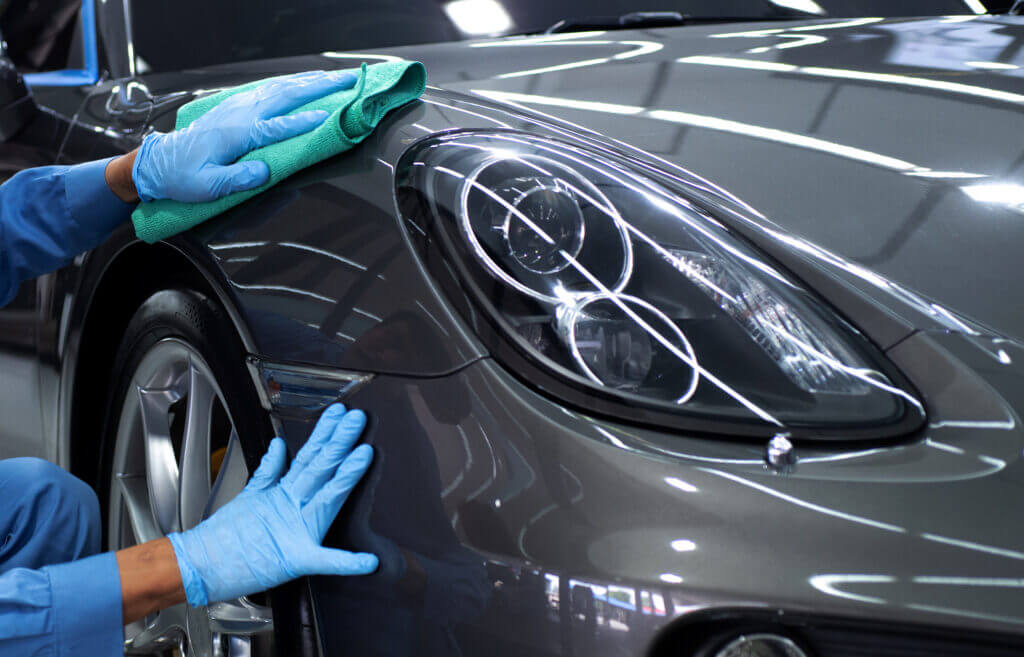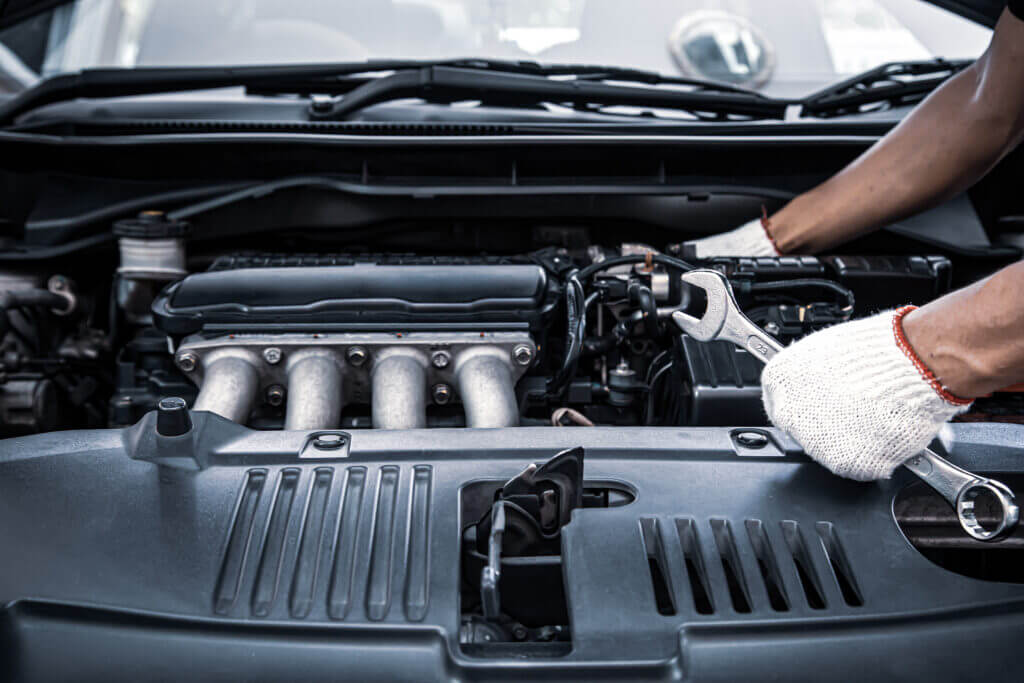At a glance
- Most cars come with a warranty, but once it expires, it’s up to you whether you extend it or not. This is still applicable to used cars, too
- There are different types of car warranty, including used, extended and private
- Car warranty terminology can be tricky! Take a closer look at each term and find out what it means
- We’ll guide you through the pros and cons of getting an extended warranty, what this might entail, and where to get one from
Buying a new or a used car? A decent car warranty will provide you with peace of mind should the vehicle develop any faults. Read on to discover what it is, what it covers, and what types there are.
Contents
- Everything you need to know about car warranties
- What is a car warranty?
- Do cars come with a warranty?
- What about a warranty for used cars?
- What does a car warranty cover?
- What is not covered by your car warranty?
- Car warranty key terms
- What types of car warranty are there?
- New car warranty
- Extended warranty
- Approved used car warranty
- Used car warranty
- Private car warranty
- Electric car battery warranty
- Paintwork and perforation warranties
- Do you need a car warranty?
- Advantages of taking out a car warranty
- Disadvantages of taking out a car warranty
- Is it worth having a car warranty?
- How much does a car warranty cost?
- Where can I get a car warranty from?
- How to make a car warranty claim
- Could my car warranty claim be rejected?
- Expert car advice from Motors.co.uk
What is a car warranty?
A car warranty is essentially a type of insurance policy that covers the cost of repairing your vehicle in the event of a mechanical defect, electrical failure or faulty paintwork during the period of cover.
For example, if your car’s air conditioning stopped working (electrical default) or its brakes failed (mechanical default), a car warranty would cover some, or all, of the repair costs.
There are several provisions and conditions on what a car warranty will and won’t pay out for, the details of which we’ll get into later. But generally speaking, a car warranty is designed to protect you from having to pay for issues caused by a manufacturing error or fault.
Yes, in most instances, cars do come with a warranty. New cars usually come with a free warranty that’s valid for three years or 60,000 miles from the date of manufacture – whichever comes first. Though some car manufacturers will offer even longer warranty periods, as is the case for Kia’s seven-year / 100,000-mile warranty, or Hyundai’s five-year / unlimited mileage warranty. Once your new car warranty expires, it’s then up to you if you want to purchase more or run your car without it.

What about a warranty for used cars?
But what about used cars, we hear you ask. Well, you should know that used cars are still eligible for a warranty too. If you’re buying a used car, depending on just how used it is, it could still be covered by the manufacturer’s original warranty, i.e. the new car warranty we mentioned above. If that’s the case, you can let it run and make a decision about what you want to do nearer the expiry date.
If it’s no longer covered by the new car warranty, then you have a few options. Firstly, the dealership you’re purchasing the used car from might offer you a complimentary used car warranty. If they don’t offer you any then you might decide to purchase your own, privately.
We’ll explore new car and used car warranties in more detail later on, but for now, let’s look at what a car warranty actually covers.
What does a car warranty cover?
What’s covered by your warranty will vary depending on the insurer and the type of warranty you have, so make sure you read the small print carefully. But on the whole, most warranties will cover the cost of repairs to:
- Transmission – this is the part of the car that actions a gear change
- The engine
- Fuel and ignition systems
- Air conditioning
- Electric systems
- Gearbox
- Steering system
- Suspension
- Clutch and brake parts that could not have been caused by driving style – e.g. leaving your foot on the clutch for too long
Some car warranties will also cover the cost of the breakdown recovery service, as well as a replacement car for you to use whilst yours is being fixed. But that’s not always the case, so again, read your policy details carefully to make sure you don’t get hit with an unexpected vehicle recovery bill.
It’s also important that you check which parts are covered under your car’s warranty, and which ones have a limited coverage period. For example, under Kia’s seven-year warranty, cracks to exterior glass are actually only covered for the first three months / 1,000 miles and the air conditioning refrigerant charge for the first 24 months. If a certain part of your car breaks that isn’t covered under the warranty, then you’ll have to foot the bill for it.
What is not covered by your car warranty?
Having a car warranty doesn’t mean you’re automatically covered for any and every issue you have with your vehicle. In fact, there’s actually quite a lot that isn’t covered under a car warranty. Again, it can vary depending on the type of warranty you have, but generally, a standard car warranty won’t cover the following:
- Everyday wear and tear – things like worn tyres, brakes and windscreen wipers
- Specified car parts like batteries and wheels
- Cars used for racing or as taxis
- Repairs to parts that are not broken
- Damage caused by frost, rust or carbon build-up
- Damage caused by natural disasters such as floods or heavy winds
- Damage caused by yourself – such as reckless driving, driving on roads you’re not supposed to, or just generally not looking after your car properly
You can also invalidate your warranty if you don’t have it serviced or MOT’d regularly. Modifying your car can also negate the warranty too, so double-check before having anything fitted or changed. For instance, if you wanted to get a personalised number plate, then you would need to check your car warranty would allow for this before going ahead.
Additionally, some car warranty policies will only allow certain garages to carry out the repairs. So if you are booking your car in for a repair under warranty, make sure it’s with an approved mechanic or you might have to pay for it yourself.
Car warranty key terms
When checking what’s covered and what’s not covered under a car warranty, we’ve mentioned how important it is to read the small print. However, terms and conditions notoriously contain lots of technical terms and industry jargon that can be difficult to get to grips with. So, here are some of the key phrases you might want to familiarise yourself with:
- ‘Consequential loss’ – this is what warranty providers call any damage to an insured part of the car that was caused by an uninsured part of the car breaking. For example, imagine your (insured) exhaust gets damaged because the (uninsured) catalytic converter breaks – (the catalytic converter is the part that reduces harmful emissions). Under some car warranties, you might have to pay for some or all of the repairs. To avoid this, look for a car warranty that covers you for ‘consequential damage’.
- ‘Betterment’ – this is when your car gets a part that is ‘better’ than the one it’s replacing. Meaning your vehicle ends up in a better condition than it was previously and so increases in value. If you have a ‘betterment’ clause on your car warranty you might have to pay for the upgraded replacement, either in full or by paying the difference. If you can, look for a car warranty that doesn’t restrict your cover like this.
- Garage choice – some car warranty providers have a list of ‘approved garages’ that you’ll need to use for your repairs. If your insurers do have this clause and you take the car somewhere else, you might have to pay for the job yourself.
- Labour rate – that’s the garage’s hourly rate. How much of it your car warranty provider will pay towards will be stated in the small print. If what the insurers will pay is lower than the labour rate, then again, you might have to pay the difference.
- Excess – this is the amount you will need to pay towards repairs when you make a claim. For instance, if your excess is £200, this is what you would pay and your insurers would pay anything after that (up to the limit). If the cost of the repair does not exceed the excess, then your insurer might not pay at all.

What types of car warranty are there?
There are three main types of car warranty; a new car warranty, used car warranty and an extended car warranty. But did you know there are other kinds too, like paintwork and perforation warranty? With so many out there it can get a bit confusing, so in the next section, we’re going to explore each one in a little more detail.
New car warranty
A new car warranty, also known as a manufacturer’s warranty, is the one that’s included when you buy a brand-new car. It’s usually completely free, and lasts anywhere between three and seven years, though this depends on the carmaker. The majority of manufacturers offer a three-year warranty. However, Hyundai and Mitsubishi offer a five-year car warranty, and Kia goes even further with its seven-year cover.
Some carmakers will also add a mileage limit to the warranty to ensure the new car is covered for a fair amount of time. This means that the car warranty will either last for the time period or the distance quoted, whichever comes first.
Extended warranty
By extended warranty, we mean that extra cover that new car buyers can purchase to have that extra peace of mind. Essentially there are two types of extended car warranty.
The first type is an add-on to your existing car warranty. Car manufacturers offer it as an extra when you purchase the car, either as a gesture of goodwill or at a cost. This type of extended warranty may include cover not typically found in the standard warranty.
The second type of extended warranty is when the manufacturer allows you to extend your car’s warranty before it expires. An extended car warranty offers you protection for a longer time period, or for more miles. Sometimes the extended warranty isn’t as comprehensive as the original warranty, sometimes it is – it depends on your car manufacturer and policy provider.
Is it worth getting an extended warranty?
It largely depends on your personal circumstances. Sometimes extended warranties can be expensive and don’t actually cover that much. Plus, with a lot of carmakers offering three to seven year warranties, you would assume that if the car were to malfunction or develop a defect, it would do so during the original warranty.
On the other hand, extended car warranties offer you both reassurance and financial protection in the event your car suffers a mechanical or electrical fault. If this does happen, the cost of the repair can massively outweigh the relatively small cost of the extended warranty.
Plus, if you do take out extended warranty, your car will be fixed by a certified mechanic using branded parts. As a result, you can be sure the repair will be of a certain quality and the value of your car will remain intact, too.
Approved used car warranty
When you buy a used car from a manufacturer-approved dealer they might offer you this type of warranty. However, the vehicle will usually need to be less than three years old and still have some of its original cover left to run.
Official dealerships will give anyone buying a used car from an approved manufacturer this kind of warranty for extra peace of mind. The only condition is that the car must be inspected beforehand to ensure it meets the carmaker’s standards. As a norm, approved used car warranties tend to be valid for 12 months. In some cases, there may be a mileage limit alternative so that you get the full year of cover.
So what does an approved used car warranty cover? Generally, it will offer the same amount of cover as a new vehicle warranty. This is because the car will be nearly new, and so the risk of a claim is low. In any case, always check the small print because not all approved used car warranty cover will be the same.
Used car warranty
This type of car warranty does sound similar to an approved car warranty, but it’s slightly different. Used car warranty applies to cars bought from independent dealerships. This means they have no official association with the car’s manufacturer.
As a rule, independent car dealers are not obliged to provide you with any warranty at all. Though some will as a gesture of goodwill or as means of building a strong reputation. Typically, a used car warranty runs for just three months – which is considerably shorter than an approved used or new car warranty.
If you’re buying a used car from the dealership, legally, they don’t actually have to offer you any warranty. However, if you buy a used car online and you find there are faults with it – don’t worry – you’ll be protected under your consumer rights. Our handy blog, your legal rights when buying a car online, covers this in more depth.

Private car warranty
If you’re buying your car privately then you might be interested in private cover. You can take out a private warranty at any time, regardless of whether your car is new or pre-loved. You can obtain an aftermarket warranty from:
- RAC – the RAC provides a car warranty directly to buyers and it can be tailored to suit any car, no matter its age, mileage or condition. Usually, the older the car, the more you pay. And what is covered is also likely to be limited to the major mechanical components.
- Warrantywise / Warranty Direct – both companies offer warranty cover to older cars up to a certain age and mileage. You buy it like you do car insurance, in that you can pay a lump sum or make monthly repayments. These warranties are flexible and you can usually pick how long you want them to last. There are also different levels of cover depending on how old the car is, how many miles it has and its previous history.
Electric car battery warranty
This type of warranty covers car batteries on electric vehicles specifically. If you’re buying an electric or plug-in hybrid vehicle this is something you might be interested in, as an electric car battery warranty usually lasts longer than the standard warranty that covers the rest of the car.
Currently, most EV and plug-in electric vehicle manufacturers offer an eight-year battery warranty. But the mileage limit differs depending on the maker.
The purpose of having an electric car battery warranty is to protect you against ‘battery degradation’. Battery degradation is a process that permanently reduces the amount of energy a battery can hold. So, if the charge capacity dips below a certain point, depending on the carmaker, they will replace the battery free of charge.
If you need some more advice on charging your electric vehicle, our helpful guide has plenty of useful information.
Paintwork and perforation warranties
Paintwork warranties guarantee the quality and finish of a car’s bodywork, and they usually last for the same amount of time as the standard warranty (around three years). Paintwork is prone to damage, and so after three years, it becomes harder to determine if the damage was caused by a fault in production or simply just the standard wear and tear that happens when running a car.
Perforation warranties usually accompany paintwork ones. What they do is guarantee the vehicle against any rust or corrosion related to poor manufacturing. This type of warranty will normally last for a longer period than paintwork warranties – depending on the carmaker – but will be worded clearly to make sure that the corrosion is not caused by external damage. For reference, lots of anti-perforation warranties last for 12 years, although there are exceptions.
Do you need a car warranty?
Not necessarily, a car warranty is not a legal requirement for car ownership, unlike car insurance. With this in mind, you might be wondering whether or not you actually need a car warranty.
As we mentioned earlier, most new cars and even some used cars will come with a standard manufacturer warranty included that you don’t need to pay for. However, once this runs out, you might be wondering whether you should pay for an extended, aftermarket, or another type of car warranty. Below we’ve outlined some of the pros and cons of taking out a car warranty.
Advantages of taking out a car warranty
- As well as providing you with peace of mind, a car warranty can help cover the costs of mechanical or electrical defects – which can be incredibly costly
- You can tailor car warranty policies to suit your needs
Disadvantages of taking out a car warranty
- There are limits to how much you can claim – usually, the car’s total value will be taken as the upper limit
- It’s a significant extra annual cost on top of the rest of the vehicle’s running costs – though it can save you money if your car develops a mechanical or electrical fault. So you need to weigh up the cost of having a car warranty vs the cost of not having one. It needs to work for you.
- You’ll need to make sure you know all the exclusions and requirements so that your warranty is not invalidated.
Is it worth having a car warranty?
There’s no denying that you’re better off with a car warranty than you are without. However, once your new car warranty expires – an extended, specialist or used warranty is your only option. And it will cost you. So the question then becomes, is it worth paying for a car warranty?
Only you can make this judgement call. As with any insurance policy, it’s about weighing up the risks. On the one hand, taking out a car warranty is another monthly expense, and what if you never need to use it? Or your car breaks but the warranty doesn’t cover it?
On the other hand, the relatively small cost now could save you hundreds, even thousands, down the line. That’s not to mention the reassurance that comes with purchasing a comprehensive car warranty.
For some – this makes a car warranty worth it, others may be willing to chance it. There are lots of factors to consider here, and you will need to weigh up the costs of having a policy in place vs the costs of not having it in place and come to a decision that’s right for you.

How much does a car warranty cost?
Unfortunately, there isn’t a standard answer to this question, either. How much you pay for a car warranty will depend on factors such as:
- The car’s mileage
- The make and model of the car
- How old the car is
- The level of cover you want and how long you want it for
In general, the older or more expensive the car is, the pricier the warranty. If you’re looking for a car warranty privately, make sure you shop around and check with different providers to get the best deal. If you’re buying through a dealer you may have no choice but to go with their warranty.
Where can I get a car warranty from?
If you’re buying a new car then it should come with a carmaker’s warranty as standard. If you want to extend the coverage of your new car warranty then you can pay for an extended car warranty when it’s about to expire.
However, in the event you’re buying a used car from a dealership, then you may get a used car warranty as part of the deal. This is not a given though, so make sure you check with them. If it’s not included, dealerships can still provide you with a used car warranty but you might have to pay extra for it.
Lastly, if you’re buying your car from an independent garage, dealer or private seller, or are buying a warranty long after you’ve bought the car, then you will need a private car warranty. These can be quite flexible and customisable, though it will be up to you to source this kind of warranty and set it up. As we mentioned earlier, RAC, Warrantywise and Warranty Direct all sell independent car warranties.
How to make a car warranty claim
If your car has broken down because of a mechanical or electrical fault then you will need to make a claim. Making a claim is relatively straightforward, simply follow the steps below:
- First and foremost, check that your car warranty covers you for this type of claim
- If it does, contact your insurer to report the issue and start the claim. Don’t wait longer than 7 days, as you may negate your cover if you wait that long
- If your claim is valid, your insurer will give you the go-ahead and tell you where to find your nearest authorised garage
- Contact the authorised garage to book your car in for the repair. Take a copy of your warranty policy documents, proof of servicing and an up-to-date MOT certificate
- If your claim is accepted, then your insurer will pay the cost of the repairs directly to the garage or reimburse you once you’ve paid for the work. If you have an excess policy it will be deducted from your claim
Could my car warranty claim be rejected?
Unfortunately, yes. You can find a list of the reasons why your claim might be rejected in this section. But as a general rule to be aware of, a car warranty is designed to cover you for mechanical and electrical faults, caused by factors outside your control. If the damage doesn’t fall under this remit, then it’s likely that you will have to cover the cost.
Plus, even if the damage has been caused because of a default with the car, there are still conditions you need to be aware of – such as the ‘betterment’ clause, labour rates and approved garages. To avoid your claim being rejected you should always read the small print and if you’re still unsure you should ask your insurer to clarify.

Expert car advice from Motors.co.uk
At Motors, our aim is to arm you with all the tools you need to come to a decision that’s right for you. We hope our guide has cleared up any questions you have surrounding a car warranty, including whether or not it’s right for you.
If you’re looking for more information on all things cars, our car advice hub is home to an abundance of guides, from how to buy a used car online to understanding car depreciation. We’ve got everything you need.


